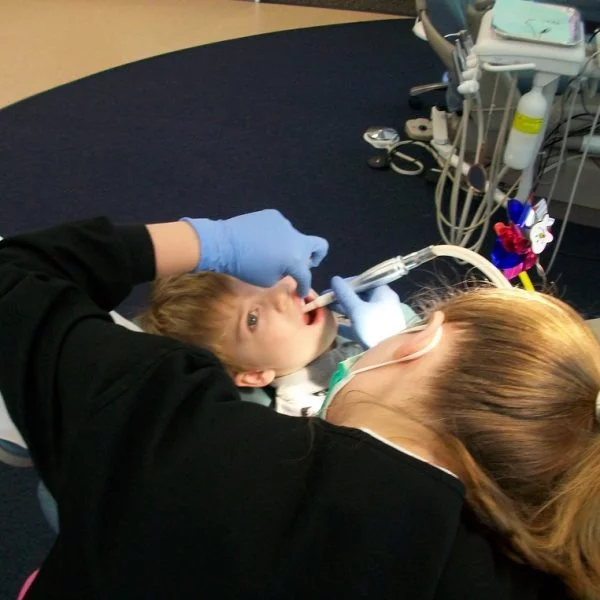
Did you know that scheduling regular dental visits at an early age is the key to the development of your children’s healthy teeth! Our team is dedicated to ensuring your child’s dental exam is calm and relaxing as we use visual aids to ensure your child is engaged in the process and having a little fun too! There is so much to share about brushing methods, teething and the development of adult teeth that we would love the chance to help you with your child’s oral health by developing a caring plan that works for both your child and you.
Following the recommendations of the American Academy of Pediatric Dentistry, our doctors suggest infants should come in for their first oral exam between the ages of six months to 1 year old.
Our doctors will review proper diet, age-appropriate hygiene, and go over pacifier use to make sure your child’s oral health starts strong and stays strong.
Wipe gums twice a day with a soft, clean cloth in the morning after the first feeding and right before bed to wipe away bacteria and sugars that can cause cavities.When teeth come in, start brushing twice a day with a soft, small‑bristled toothbrush and plain water.
Monday: 7:30am – 4:00pm
Tuesday: 7:30am – 4:00pm
Wednesday: 7:30am – 4:00pm
Thursday: 7:30am – 4:00pm
Friday: Closed